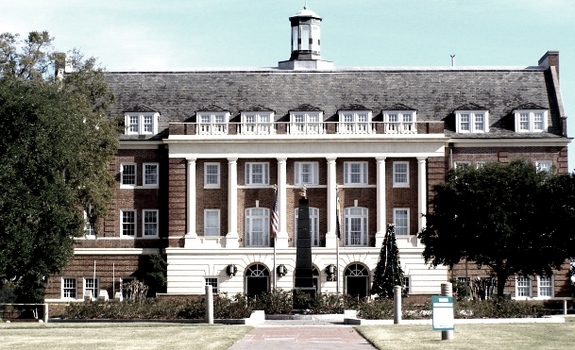
Florida A&M and other state universities would be able to withhold records under a proposal before the Legislature. (Photo: Wiki Commons)
By Steve Miller
Florida Center for Investigative Reporting
Those seeking jobs as provost, dean or president at one of Florida’s public universities could receive public records protection over their names and work history being released to the public under a law proposed by state Rep. Dave Kerner.
The legislation would require universities to release only the names of finalists for a top official spot no less than three weeks before a final vote on the candidates is taken.
Kerner’s proposed law also includes an exemption from Florida’s Sunshine Law for any meetings held by public bodies discussing compensation to be offered a potential university leader. Last week, Kerner backed off that provision of his bill. “I’m open to suggestions on that,” he said. “I’d like to get people to the table for input.”
The transparency of university searches for top officials has been litigated and debated for the years. The positions often include six-figure salaries and lucrative perks, including a car allowance and deferred compensation.
Several newspapers in Baton Rouge, La., earlier this year sued Louisiana State University, alleging the school violated the state’s open records laws by refusing requests for information regarding candidates for university’s top spot. It’s almost a repeat of a legal tussle in 2001 at LSU relating to the search process for a new athletic director, in which the school settled and turned over the requested material.
Late last year, three newspapers sued the University of Wyoming over presidential search records, claiming the names of finalists, rather than all applicants, are a public record.
In Florida, the process is relatively open under current laws.
“I would think that in a state where transparency is ingrained in the DNA of the society and in the constitution itself, that it would not fly,” said Ken Bunting, executive director of the National Freedom of Information Coalition.
Bunting added that several states have written exemptions for university leadership searches into the personnel provisions of their sunshine laws.
“It’s bad lawmaking,” he said.
Kerner, 30 years old, said he got the idea for the bill while attending The University of Florida.
“I was watching presidential searches at other schools, and I had read our sunshine laws, and I though here is value in protecting that larger applicant pool,” said Kerner, who was elected in 2012.
He maintains that with the assurance of secrecy, university leadership applicants would create a better talent pool from which to choose.
That doesn’t imply, Kerner said, that business done the current, more open way has led to poor leadership at the state’s public universities.
“I think our system attracts some of the finest candidates,” Kerner said. “Something doesn’t have to be broke to improve on it.”
